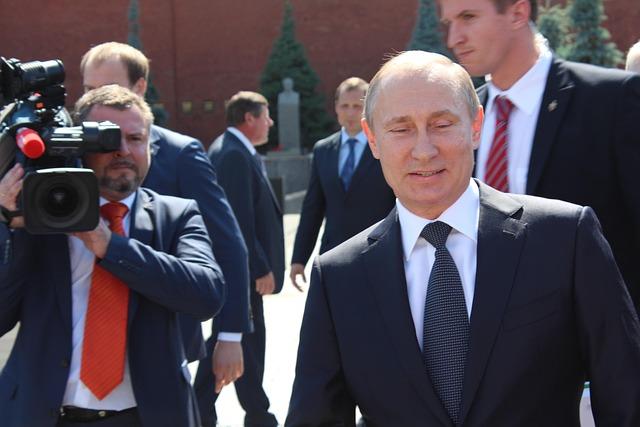Putin’s Withdrawal from Peace Talks: Implications for the Russia-Ukraine Conflict
In a notable turn of events that highlights the intricate dynamics of the ongoing Russia-Ukraine war, President Vladimir Putin has reportedly opted out of a potential peace conference in Istanbul. This decision has sparked widespread speculation about Moscow’s strategic objectives and future plans. As global mediators strive to promote dialogue aimed at reducing tensions, reports indicate that Russia is instead demanding territorial concessions from Ukraine, raising alarms about the feasibility of reaching a negotiated agreement. With combat continuing across various fronts and diplomatic initiatives appearing ineffective, the situation remains volatile, underscoring the difficulties faced by world leaders in their efforts to resolve one of today’s most critical geopolitical crises.
Putin’s Absence: Analyzing Strategic Intentions Behind Skipping Peace Talks
The recent absence of Russian President Vladimir Putin from peace discussions in Istanbul raises essential questions regarding Moscow’s strategic motives. By avoiding direct negotiations with Ukrainian representatives, Putin seems to be employing a strategy designed to solidify Russia’s territorial goals. Analysts interpret this move as part of a larger tactic marked by an intentional unwillingness to compromise, as Russia escalates its demands for land concessions from Ukraine. This approach reflects an entrenched belief within Kremlin circles that time may favor them, allowing Russia to exploit the ongoing conflict without being bound by formal negotiations.
This stance complicates an already intricate geopolitical landscape and may signal growing confidence in Russian military strength. By postponing talks, Putin could be attempting to fortify his position both domestically and on the international stage. The ramifications of this calculated silence extend beyond immediate territorial issues; they could instigate shifts in alliances and influence throughout Europe and beyond. Key considerations include:
- Heightened Military Engagement: Continued military operations are likely as communication remains stagnant.
- Realignment of Alliances: Nations might reevaluate their stances based on unfolding developments.
- Global Reactions: Western countries may ramp up sanctions or enhance military support for Ukraine.
Ukraine’s Challenge: Confronting Territorial Demands Amidst Pressure
The current climate in Ukraine has become increasingly tense as international discussions stall while Russia intensifies its push for land concessions. This predicament places Ukrainian leadership in a difficult position where they must weigh national sovereignty against an urgent desire for peace. The consequences of such concessions could significantly reshape Eastern Europe’s geopolitical landscape, raising concerns about setting precedents for other conflicts worldwide. As diplomatic efforts falter, calls for unwavering resilience among Ukrainian officials are becoming more pronounced—prompting them to explore both military options and negotiation strategies.
A few critical points have surfaced regarding Ukraine’s perspective on potential compromises:
- Military Preparedness: Ukrainian forces are actively enhancing their defenses anticipating further hostilities.
- Diverse International Support: Western allies exhibit varying levels of commitment concerning military assistance.
- Civic Sentiment: Public opinion reflects mixed feelings between defiance against aggression and anxiety over possible territorial compromises.
The table below illustrates key regions under contention along with their respective strategic importance:
| Name Of Region | Description Of Importance | Status Update | |||||||
|---|---|---|---|---|---|---|---|---|---|
| Crymea | Access To Black Sea | Occupied Since 2014 | |||||||
Donetsk td >< td >Industrial Center td >< td >Active Combat Zone td > tr >< tr >< td >Kherson td >< td >Civilians And Key Trade Routes td >< t d >Highly Contested t d > tr > tbody >Global Response: Strategies Aimed at Strengthening Ukraine’s Negotiating PositionThe global community plays an essential role in crafting effective strategies that reinforce Ukraine’s negotiating power moving forward.
Additionally, is vital when shaping negotiation dynamics.The international response emphasizes providing humanitarian assistance targeted towards displaced Ukrainians alongside strengthening civilian resilience within war-torn areas.Initiatives encompassing reconstruction funding investments into infrastructure projects supporting displaced families work towards stabilizing domestic conditions.The collaboration among various organizations like UN agencies & Red Cross ensures relief reaches those most affected fostering unity & solidarity.These approaches not only enhance bargaining leverage but also convey clear messages indicating that respect towards sovereignty & integrity remain non-negotiable principles.
|









